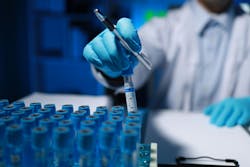GlobalData concerned about new LDT rule’s impact on personalized medicine
GlobalData says the Food and Drug Administration’s (FDA) new laboratory developed tests (LDTs) rule, “raises concerns about innovation in personalized medicine.”
According to GlobalData’s release, “it imposes new burdens on typically small laboratories to meet FDA standards for a wide variety of test types, including those using complex or rare biological samples.”
The release highlighted barriers that could impact the final rule, like the ACLA v. FDA lawsuit and the presidential election.
Selena Yu, Senior Medical Analyst, at GlobalData, commented: “The future of LDTs transitioning to medical devices is in limbo. This is due to the multi-year process, which can lead to multiple opportunities for litigation that may delay timelines set out by the FDA.”
According to GloabalData’s statement, “Many clinical laboratories lack expertise in FDA proceedings, and they are likely to rely on their manufacturing vendors for aid. IVD manufacturers need to consolidate LDTs, where their reagents are involved in, by selecting which tests are investment-worthy as proceeding with clinical trials and FDA approval can be costly. They need to consider aspects such as LDT profitability (market size and patient pool growth, test manufacturing cost and production) and clinical trial complexity (limited patient pool, expensive and exhaustive to execute) when selecting which LDTs to proceed with.”
Additionally, “Small laboratories will need to lean on their manufacturers and large laboratories in various ways, from advice on how to navigate the FDA approval space to having their tests acquired by large companies or manufacturers.”
Finally, “consolidating the number of LDTs submitted for similar or identical tests by different labs reduces the need for investments by manufacturers and may result in a decrease in the number of clinical labs. The sheer volume of tests that were conducted in the LDT space will also not change drastically as the same patient population is receiving tests.”

